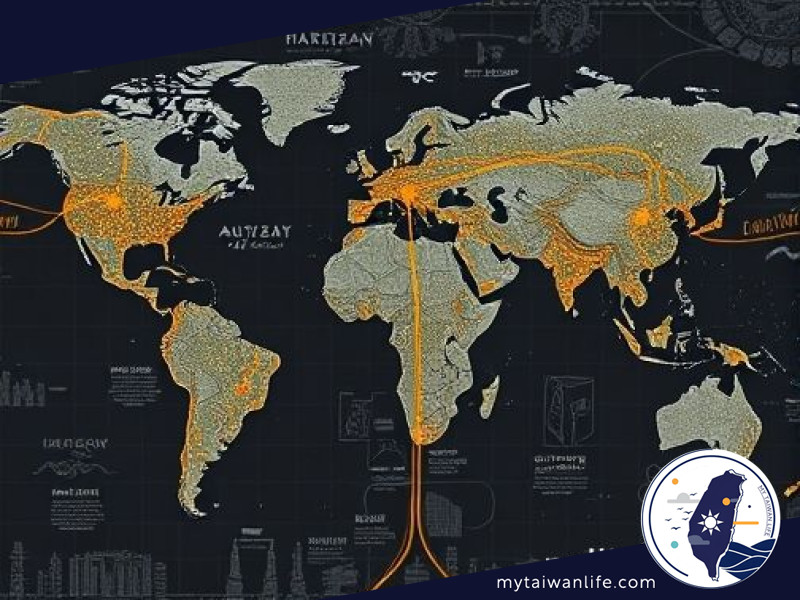One Trade 'Deal' Down, A Hundred More to Go: Navigating the Global Trade Maze
The UK Framework Agreement Offers a Glimmer of Hope Amidst a Complex Trade Landscape, But the Real Challenge Lies Ahead: China.

President Donald Trump has notched his first trade "deal," a framework for negotiations with the United Kingdom, but the global trade landscape remains a complex and challenging one. This agreement, while celebrated as a win, is more of a starting point than a finalized agreement. The actual negotiations, which could span months or even years, will determine the ultimate benefits for both the United States and the UK.
British Prime Minister Keir Starmer acknowledged the agreement's positive impact, stating it was "better than where we were yesterday." The framework anticipates reduced tariffs on some UK goods and potential market access for US products. However, the clock is ticking. With potentially punitive reciprocal tariffs looming on numerous nations by July 8, the administration faces an uphill battle to secure further agreements.
The promise of numerous trade deals, often touted by President Trump, is contrasted by the slow pace of reaching actual compromises. The true test lies in the negotiations with China, which has become a major economic challenge for the US. With tariffs exceeding 145% on most Chinese imports and retaliatory tariffs from China, trade has significantly diminished between the two economic giants. This weekend's meeting in Geneva between US and Chinese officials is crucial. The US Treasury Secretary Scott Bessent hopes for a "de-escalation," while Trump insists he will not reduce tariffs ahead of discussions, a pre-condition Beijing has set for talks.
The US has the highest effective tariff rate on imports compared to other developed countries, sending the US economy into reverse. The first contraction since 2022 shows how companies are hoarding goods due to tariffs. Actual trade deals are complex, involving extensive agreements. The UK "deal" is more akin to a memorandum of understanding, which may offer near-term tariff reductions but may not yield substantial economic gains for a while. The analyst Jacob Jensen of the American Action Forum, believes it will be difficult for the US trade representative to negotiate potential trade agreements in such a short time, meaning President Trump must soon determine whether tariffs will be reinstated or delayed further.
The stock market responded positively to the news. While deals are struck with various trading partners, the success with China is the defining factor. High tariffs have stalled trade. Sailings from China to the United States plummeted in April, and experts predict disruptions such as higher prices, shortages, and empty store shelves. Bessent has acknowledged that the tariff on China is "unsustainable," and Trump also expects it to come down. Experts believe the tariff needs to be reduced by over half for trade to resume. Even if an agreement is reached, it will take weeks or even months for American shelves to be restocked. Despite the warnings and economic turmoil, a deal appears distant. According to Bessent, it could take 2 to 3 years to normalize trade with China.
Other Versions
Un acuerdo comercial y cien más por cerrar: Navegando por el laberinto del comercio mundial
Un Trade 'Deal' ; de moins, une centaine de plus à venir : Naviguer dans le labyrinthe du commerce mondial
Satu Perdagangan ' Kesepakatan ' Jatuh, Seratus Lebih Lagi: Menavigasi Labirin Perdagangan Global
Un accordo commerciale in meno, cento in più: Navigare nel labirinto del commercio globale
貿易取引は1つ減り、あと100:世界貿易の迷路をナビゲートする
하나의 거래가 성사되었지만, 앞으로 100개의 거래가 더 남았습니다: 글로벌 무역 미로 탐색하기
Isang Kasunduan sa Kalakalan na Tapos, Isang Daan Pa ang Kailangan: Pag-navigate sa Pandaigdigang Labirint ng Kalakalan
One Trade 'Deal' Down, A Hundred More to Go: Navigating the Global Trade Maze
ข้อตกลงการค้า 'Deal' สำเร็จแล้วหนึ่งรายการ เหลืออีกร้อยกว่ารายการ: การนำทางเขาวงกตการค้าโ
Một Thỏa Thuận Thương Mại 'Deal' Xong, Hàng Trăm Thỏa Thuận Khác Còn Ở Phía Trước: Điều Hướng Mê Cung Thương Mại Toàn Cầu

